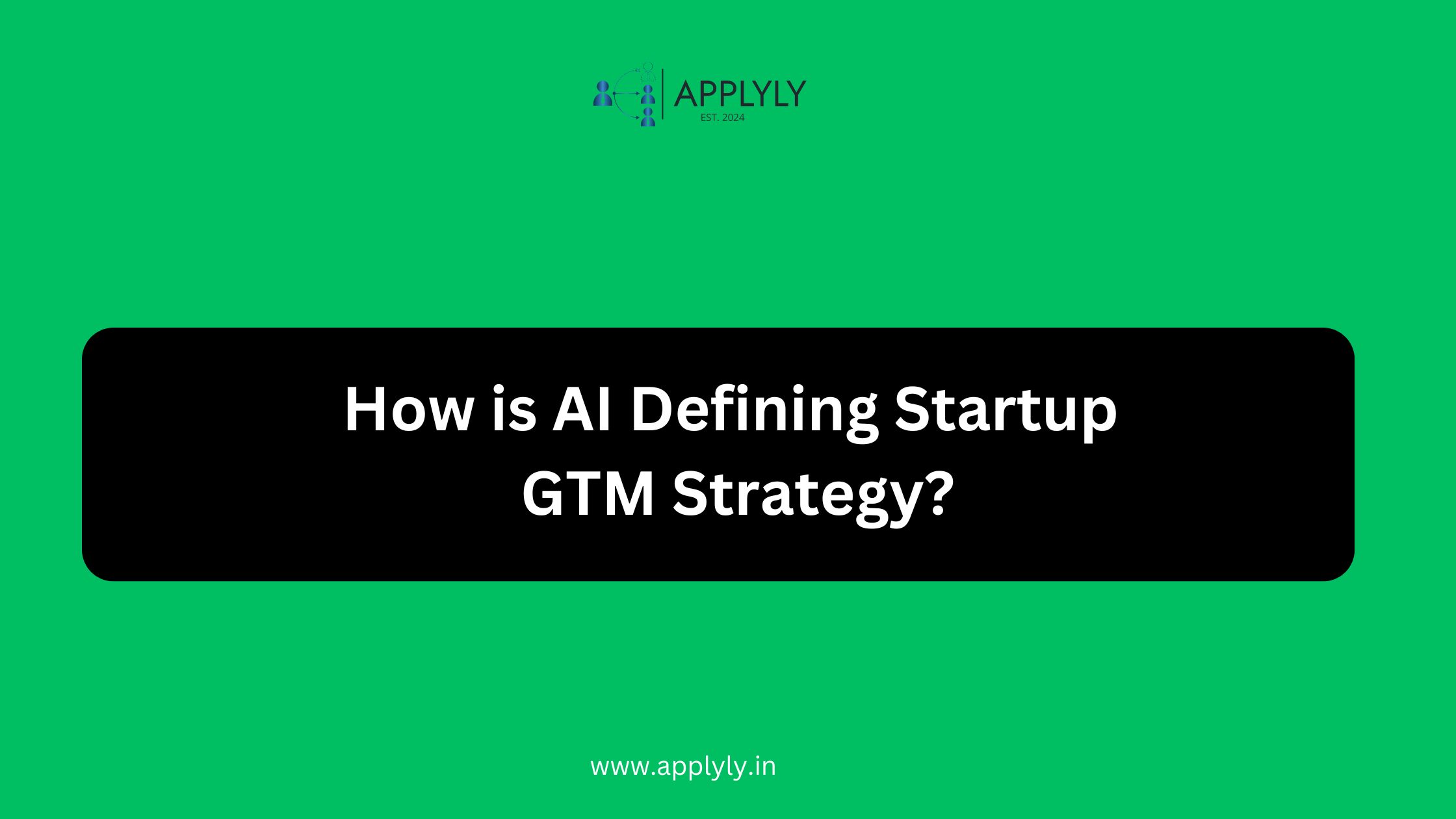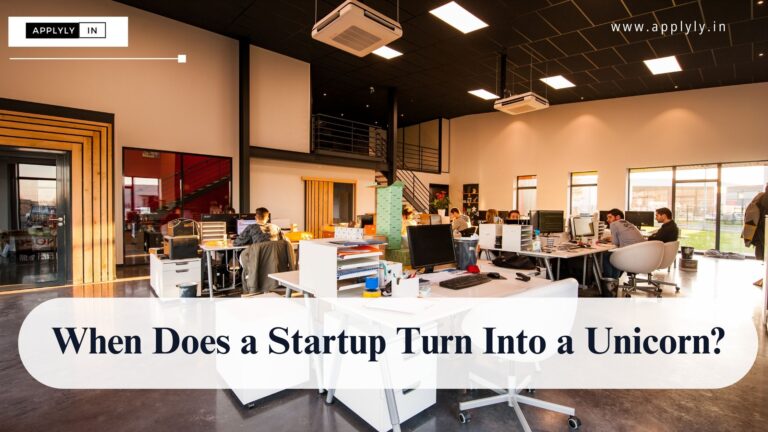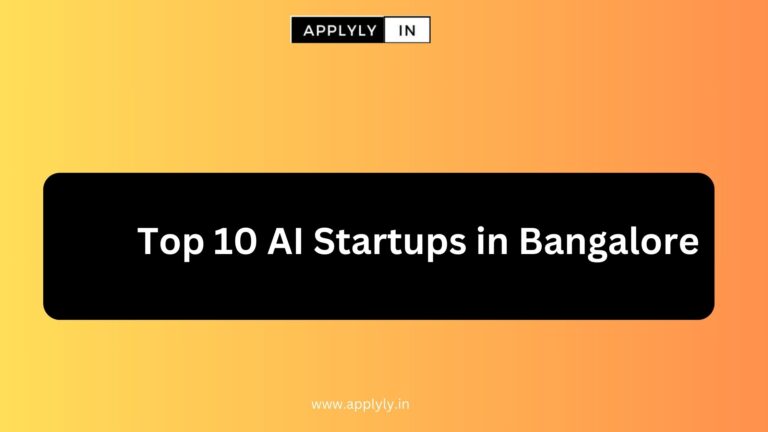How is AI Defining Startup GTM Strategy?
INTRODUCTION
With the ongoing development of artificial intelligence (AI), there is a dramatic shift in the way that startup develop and implement its go to market or GTM strategy 🚀. In this blog, we will explore why and how AI is defining startup GTM strategy, how it is enhanced, and why it is necessary for startups who wish to be distinct from the crowd.
What is a Go-to-Market (GTM) Strategy? 🤔
A go-to-market (GTM) strategy is a step by step that explains how to launch a new product or service in the target market. This is a type of road map that also helps us define how to deliver it to the potential customers,
A GTM strategy usually includes defining the target audience, understanding market demand, choosing sales channels, and outlining promotional tactics. This is where AI comes in to make everything faster, smarter, and more accurate.
The Key Elements of a GTM Strategy 📌
- Identifying the Target Audience
- The main point of a GTM strategy must be to get a clear understanding on how to produce best results.
- In other words, this involves studying and designing the characteristics of the target clients.
2. Finding Product-Market Fit
- It is very important that the product or services aligns with the needs and values of the target market.
- In a lot of cases, Startup keep altering the product or service in order to reach optimum level and this reduces the loyal client base. So, a startup needs to choose accordingly on how can they retain their client base.
3. Defining the Value Proposition
- Every startup needs to ask a question. What are the unique features of the product or service that you are choosing?
- The purpose is to explain how the product resolves particular issues more effectively than the competitors do .
4. Choosing Sales Channels
- Your GTM plan should specify how you would like to reach your customers with your product.
- It may be via direct online sales, partnerships, or selling through local retailers based on what suits your target audience the most.
5. Setting a Pricing Strategy
- Pricing is fundamental to making your product appealing and accessible.
- Some start-ups adopt a one-time purchase strategy while others may opt for a subscription one, for consistency in revenues.
How AI is Defining Startup GTM Strategy 🎯
AI isn’t just a trend; it’s transforming how startups approach GTM strategies. With Ai, Startups are transforming the way they are appraoching GTM strategies. Let’s explore how ?
1. Enhancing Customer Segmentation with AI Сapabilities 🧠
Start-ups can target their market effectively thanks to the study of the customers’ statistics and behaviour with the help of AI.
- Data Analysis: AI tools help to do effective analysis of customer data with the purpose of defining the types of ideal customers for the business.
- Predictive Modelling: AI models can help Startups to target those people who have an active engagement to the particular product or service.
2. Enhancing Customer Experiences through the Use of AI Technologies 🎨
People who pay for goods or services expect them to be different and unique. This is where AI comes into play !!
- Dynamic Content: AI-powered systems show personalized content to each user, whether it’s an email or website layout, enhancing customer experience.
- Chatbots: People may want to ask something but not get any answers, even if they are potential customers. The use of chatbots can help retain customers.
As customers tend to feel valued and more so trust such interactions, they end up engaging more with the startup and this works for the advantage of the startup.
3. Optimizing Lead Scoring and Nurturing 📈
AI helps startups score and get leads with great accuracy:
- Lead Scoring: AI can help sales teams to focus on high-quality prospects.
- Automated Nurturing: An AI system Helps in Managing Customer Relationships by Monitoring the Progress of the Customers and Sending Timely Message, if Required.
AI makes sure that for every startup, they earn the most value out of every interaction and helps drive growth.
4. Pricing 💸
AI is used by businesses optimally pricing the products to the customers.
- Dynamic Pricing: AI algorithms define how to set prices.
- Predictive Pricing Models: AI tools can also try to suggest ideal prices. This enables them not to lose the competitive edge as well as be profitable.
Pricing is the most important manipulation in marketing and if AI can define this aspect of GTM strategy
5. Marketing and Return on Investment💡
AI can improve how startups allocate budgets and how long does it take to do Return on Investment:
- Campaign Setup: AI looks at the functionality of those adverts, placed on social networks and search engines to help the startups direct their finances into the channels with higher returns only.
- ROI Forecasting: AI is able to assess potential returns on each campaign and can help startups focus on efforts that drive the best results.
6. Product-Market Fit Faster ⏩
AI examines the interactions with customers and their purchasing patterns to determine the most valued attributes by the customers:
- Customer Feedback Analysis: Sentiment analysis tools help to reveal how customers feel about a product. This helps founders make improvements in the shortest time possible.
- A/B Testing with AI: AI tools are able to consuct tests. This helps in identifying features that users love, so startups can focus on improvements that matter.
This accelerates the path to product-market fit, a critical step for any startup aiming to scale successfully.
7. Streamlining Sales Operations 🔄
AI-driven automation boosts the productivity of startup sales teams:
- Sales Forecasting: AI models predict future sales based on current data, allowing startups to set realistic targets.
- Automated Workflows: AI handles repetitive tasks, like sending follow-up emails or logging interactions, freeing up salespeople to focus on high-value activities.
Streamlined sales operations help startups work efficiently, a huge benefit for small teams working toward growth.
8. Competitive Analysis and Market Trends 🔍
AI also helps startups keep a close eye on competitors:
- Competitive Intelligence: AI tools track competitors’ moves, giving startups insights to improve their strategies.
- Market Trends Prediction: AI predicts trends, helping startups align their GTM strategies with changing market demands.
With AI-driven market insights, startups can adapt quickly and stay ahead, even in competitive landscapes.
Why AI-Driven GTM Strategy is Essential for Startups 📊
In the present day and age, every startup has to look for every possible edge it has. AI is assisting in not only how quickly startups can come to the market but also how they interact with the customers.
Summing Up: How is AI Defining Startup GTM Strategy?
For startups, this technology-driven approach offers the ability to scale faster, make smarter decisions, and achieve greater impact. It’s no surprise that AI is quickly becoming a go-to tool for startups aiming for sustainable success.
In such an age, use of AI in establishing a sound GTM strategy for a startup is not optional, willy-nilly, it has to be in place for the startup to survive and thrive. 🎉
Thanks






